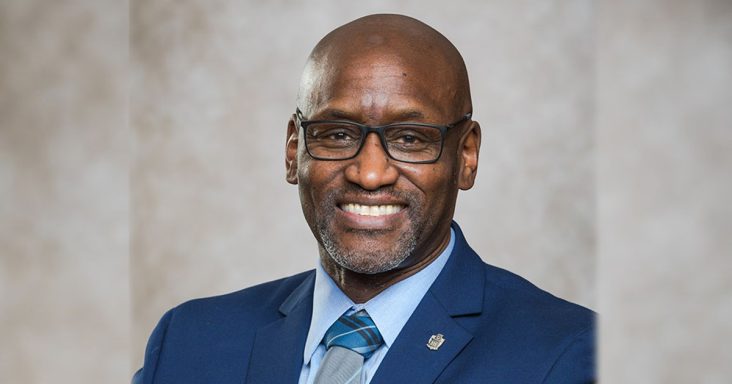New UA chancellor discusses strategy to invest in need-based financial aid
by December 8, 2022 7:28 am 981 views

Charles Robinson
After 15 months of holding the job on an interim basis, Dr. Charles Robinson, previously the school’s provost, officially became the chancellor of the University of Arkansas at Fayetteville on Nov. 16.
The vote was unanimous by the UA System board of trustees during its regular meeting in Monticello.
Robinson is a Houston native who’s been at the school for more than 20 years. He is also the first African American to lead the campus.
Following his appointment, during an interview with Roby Brock on the Sunday morning television show “Talk Business & Politics,” Robinson discussed several topics, including his strategy to invest in need-based financial aid.
“Non-Pell [eligible] students are graduating at 76% over six years, whereas Pell [eligible] students are graduating around 55% over six years,” Robinson said. “And for most of that difference, you can explain it tied to their ability to manage cost. So, if a student can’t afford college, they go to work. They work 20, 30, and sometimes 40 hours a week while taking classes. If we could build a fund to reduce the cost of those who are Pell-eligible to reduce their costs, we are likely to close that gap in that six-year graduation rate.
“And I think that that would be a noble endeavor for the land grant institution to be able to close that gap and say to our Pell-eligible students in this state that if you gain acceptance to the University of Arkansas, we will provide you with resources that greatly reduces your debt load, and then allows you to be more of a traditional student, finish up in four years [or] five years so that you’re not incurring greater debt.
“We want to always be at the forefront of trying to reduce costs, particularly for Arkansans.”
Robinson also commented on the national debate on student loan debt forgiveness. According to researchers at EducationData.org, the average public university student borrows $32,880 to attain a bachelor’s degree.
“The question for the University of Arkansas is how can we do more to create access, and creating access for Arkansans means driving the cost down or at least keeping the rate of increase lower than what you would find nationally. Controlling costs is, to me, the most significant barrier to success.
“And so, I think it’s important for us to look at our university, see how we can manage more effectively, get support from donors and those who are interested in supporting this particular area and seeing what we can do to increase outcomes. If a student can graduate in four years, it will cost them less than if it takes them six years to graduate. So, we’re trying to look at this and analyze it and see how we might be part of the solution on the issue of indebtedness by not making the indebtedness problem a greater problem, particularly for Arkansans.”
You can watch his full interview in the video below.
